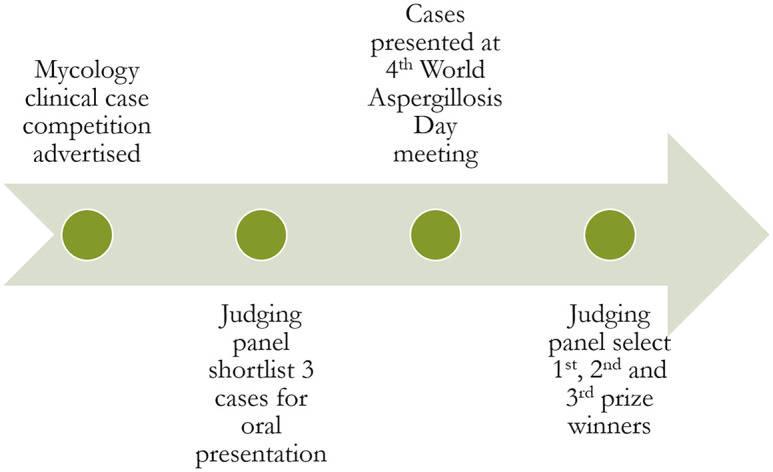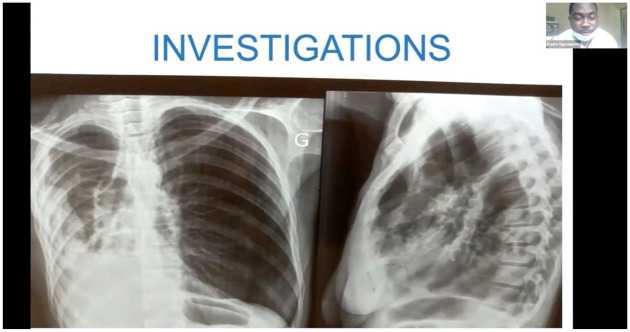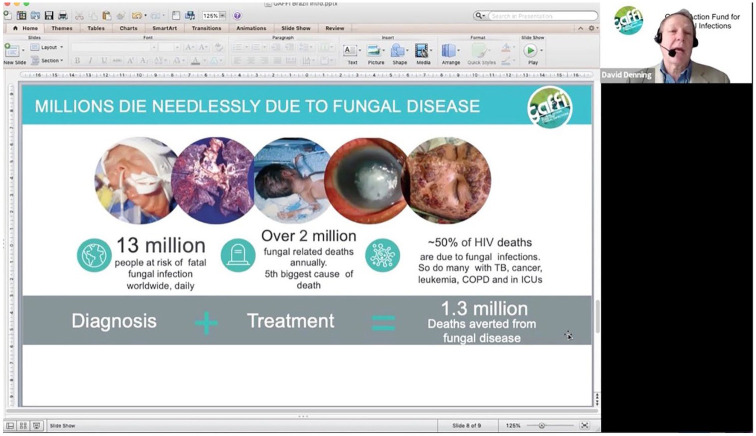Fungal diseases affect over a billion people and are estimated to cause more than 1.5 million deaths annually. 1 Despite these alarming figures, and the fact that a significant number of invasive fungal infections (IFIs) are life-threatening, fungal diseases remain largely neglected by public health authorities in many countries across the globe. This failure to prioritise fungal diseases appears to be disproportionately impacting people from resource-limited settings, as evidence suggests that people living under socioeconomic restrictions are at higher risk of mortality and morbidity from fungal diseases.2,3 Though prevalent in many settings, fungal diseases may not be clinically obvious and health professionals need to be imbued with knowledge from targeted education to consider a fungal diagnosis. Serious gaps in diagnostic, therapeutic and preventive tools for fungal infections, combined with a dearth of knowledge on mycology among health professionals make these diseases more lethal, especially for vulnerable groups. 4
Nigeria, Africa’s most populous nation, has not been spared the effects of serious fungal infections. 5 This is unsurprising as Nigeria has a high prevalence of established risk factors for IFIs such as human immunodeficiency virus (HIV) and pulmonary tuberculosis (TB). With an adult HIV prevalence of 1.5%, the absolute number of people living with HIV in Nigeria constitutes the second largest HIV epidemic globally. 6 With an estimated 440,000 cases of TB occurring annually, Nigeria is ranked first in Africa and sixth among the 30 high TB burden countries globally. 7 Coupled with the existence of enabling factors for fungal proliferation, such as the hot and humid climate, over-the-counter abuse of antibiotics and steroids, and economic deprivation and malnutrition, the estimated incidence of IFIs in Nigeria is one of the highest globally. 8 In 2014, over 11.8% of Nigerians were estimated to be afflicted with a serious fungal infection annually. 5 This is occurring against the backdrop of reported gaps in knowledge of IFIs among Nigerian doctors. 9
In response to this challenge of poor awareness of IFIs, the Invasive Fungal Infection Forum (IFIF) was established in Nigeria in 2014. In 2017, in collaboration with the Global Action Fund for Fungal Infections (GAFFI), the IFIF gave birth to the Medical Mycology Society of Nigeria (MMSN), the pioneer national medical mycology society in Africa. 7 The MMSN is focused on providing training on various aspects of mycology, implementing operational research and advocating for cost-effective diagnostics and therapeutics in mycology in Nigeria and across Africa.
Since 2018, the 1 February has been marked as World Aspergillosis Awareness Day, with the aim of raising awareness of this often under-diagnosed fungal infection. To mark the Fourth World Aspergillosis Awareness Day in 2021, the MMSN adopted an innovative strategy to promote awareness of IFIs within the COVID-19 social distancing restrictions that had been adopted by the Nigerian government. The MMSN advertised a clinical mycology case competition and health professionals were encouraged to submit interesting clinical cases that mirrored the complexities of diagnosing and treating mycology cases in resource-limited settings. All the submitted cases were reviewed carefully by an expert panel of judges (Figure 1). The three best cases were selected for oral presentation during a 2-h Zoom meeting hosted by MMSN and GAFFI on 1 February 2021 (Figure 2).
Figure 1.
Mycology clinical case presentation: concomitant Aspergillus fumigatus and Aspergillus niger infections in an HIV/AIDS patient with a history of TB.
AIDS, acquired immunodeficiency syndrome; HIV, human immunodeficiency virus; TB, tuberculosis.
Figure 2.

Process of advertisement and selection of mycology clinical cases for award of first, second and third prize at the fourth World Aspergillosis Awareness Day meeting hosted by the MMSN and the GAFFI on 1 February 2021.
GAFFI, Global Action Fund for Fungal Infections; MMSN, Medical Mycology Society of Nigeria.
At that meeting, the selected clinical cases were presented to 86 delegates from several countries namely: Canada, Côte d’Ivoire, Ethiopia, Ghana, Kenya, Nigeria, Republic of Congo, Tanzania, Uganda and the United Kingdom. The meeting also featured talks on aspergillosis – global progress report (Figure 3); diagnosis and treatment of aspergillosis – challenges in resource limited settings; challenges with laboratory contaminations and access to diagnostics for fungal diseases in Africa (Supplemental Appendix 1). The meeting was highly interactive and participants were able to share their experiences and challenges of dealing with IFIs in various settings. The meeting attracted a diverse mix of health professionals from various disciplines [dermatology, ear nose and throat (ENT), infectious diseases medical microbiology] with a high proportion of early career scientists. At the end of the meeting, the first, second and third prizes were awarded to the presenters of the clinical cases.
Figure 3.
GAFFI chief executive presents the global Aspergillosis progress report.
GAFFI, Global Action Fund for Fungal Infections.
Education has changed dramatically in the wake of COVID-19, with the distinctive rise in e-learning, whereby teaching is provided remotely via digital platforms. 10 Evidence suggests that online learning is faster and increases retention of information. 11 Online learning provides people with continuous access to learning material and is particularly convenient for those who may need to review some material before moving on. The MMSN in collaboration with GAFFI was able to successfully leverage a digital platform to facilitate interaction of 86 health professionals as part of the 2021 World Aspergillosis Awareness Day celebrations. A case-based learning approach was adopted and this has been proven to foster clinical reasoning skills and is well accepted among trainees.12,13 The clinical case report competition provided health professionals with the opportunity to present clinical cases to participants who may not have come across such unusual presentations in their settings.
Given the high level of participation in this meeting, e-learning in combination with case-based learning appears to hold promise for cascading knowledge to health professionals not only in the context of disease pandemics such as COVID-19, but also in the era of growing internet connectivity. Online meetings are also a low-cost, time-saving and effective way of convening a diverse set of academics and practitioners from varied locations across the globe, promoting north–south and south–south knowledge exchange. By eliminating travel time, online meetings involve less commitment of time and allow for greater flexibility as attendees are able to drop in and out of meetings if they have urgent matters to address. Similar innovative strategies will be required to bridge the wide gaps in Nigeria’s response to the monumental problem posed by IFIs.
In conclusion, online meetings are likely to remain a constant feature in many settings well beyond the current COVID-19 pandemic. It the light of our success in promoting awareness of IFIs via an online platform, we propose the adoption of similar innovative strategies to bridge the wide gaps in Nigeria’s response to the monumental problem posed by IFIs.
Supplemental Material
Supplemental material, sj-docx-1-tai-10.1177_20499361211021689 for Closing the knowledge gap in mycology in Nigeria by leveraging e-learning: perspectives from the field by Akaninyene Otu, Rita O. Oladele and Emma Orefuwa in Therapeutic Advances in Infectious Disease
Acknowledgments
We would like to thank all the attendees at the fourth World Aspergillosis Awareness Day meeting hosted by the Medical Mycology Society of Nigeria (MMSN) and the Global Action Fund for Fungal Infections (GAFFI) on 1 February 2021. We appreciate their contributions and time with us.
Footnotes
Author contribution: The authors confirm contribution to the article as follows: conception: AO; design: AO, RO, and EO. Draft manuscript preparation: AO. All authors edited the draft manuscript and approved the final version of the manuscript.
Conflict of interest statement: The authors declare that there is no conflict of interest.
Funding: The authors received no financial support for the research, authorship, and/or publication of this article.
Consent statement: Verbal consent was obtained from attendees at this meeting to publish their photographs in this article.
ORCID iD: Akaninyene Otu  https://orcid.org/0000-0002-6009-2707
https://orcid.org/0000-0002-6009-2707
Supplemental material: Supplemental material for this article is available online.
Contributor Information
Akaninyene Otu, Department of Infection and Travel Medicine, Leeds Teaching Hospitals NHS Trust, Leeds, UK.
Rita O. Oladele, Department of Medical Microbiology and Parasitology, College of Medicine, University of Lagos, Lagos, Nigeria
Emma Orefuwa, Global Action Fund for Fungal Infections, Geneva, Switzerland.
References
- 1. GAFFI. Global fund for fungal infections, http://www.gaffi.org (2018, accessed 2 March, 2021).
- 2. Schwartz IS, Kenyon C, Lehloenya R, et al. AIDS-related endemic mycoses in Western Cape, South Africa, and clinical mimics: a cross-sectional study of adults with advanced HIV and recent-onset, widespread skin lesions. Open Forum Infect Dis 2017; 4: ofx186. [DOI] [PMC free article] [PubMed] [Google Scholar]
- 3. Fahal AH. Mycetoma: a global medical and socio-economic dilemma. PLoS Negl Trop Dis 2017; 11: e0005509. [DOI] [PMC free article] [PubMed] [Google Scholar]
- 4. Muñoz P, Bouza E. and COMIC (Collaboration Group on Mycosis) Study Group. The current treatment landscape: the need for antifungal stewardship programmes. J Antimicrob Chemother 2016; 71(Suppl. 2): ii5–ii12. [DOI] [PubMed] [Google Scholar]
- 5. Oladele RO, Denning DW. Burden of serious fungal infections in Nigeria. West Afr J Med 2014; 33: 107–114. [PubMed] [Google Scholar]
- 6. AVERT. HIV and AIDS in Nigeria, https://www.avert.org/professionals/hiv-around-world/sub-saharan-africa/nigeria (accessed 3 March 2021).
- 7. World Health Organization. Global tuberculosis report 2020. Geneva: World Health Organization, 2020. [Google Scholar]
- 8. Oladele RO, Osaigbovo II, Ayanlowo OO, et al. The role of medical mycology societies in combating invasive fungal infections in low- and middle-income countries: a Nigerian model. Mycoses 2019; 62: 16–21. [DOI] [PubMed] [Google Scholar]
- 9. Oladele R, Otu A, Olubamwo O, et al. Evaluation of knowledge and awareness of invasive fungal infections amongst resident doctors in Nigeria. Pan Afr Med J 2020; 36: 297. [DOI] [PMC free article] [PubMed] [Google Scholar]
- 10. World Economic Forum. The COVID-19 pandemic has changed education forever. This is how, https://www.weforum.org/agenda/2020/04/coronavirus-education-global-covid19-online-digital-learning/ (accessed 5 March 2021).
- 11. The Print. Students retain more in online classrooms, shows data, https://theprint.in/india/education/students-retain-more-in-online-classrooms-shows-data/412669/ (accessed 3 March 2021).
- 12. Kassirer JP. Teaching clinical medicine by iterative hypothesis testing. Let’s preach what we practice. N Engl J Med 1983; 309: 921–923. [DOI] [PubMed] [Google Scholar]
- 13. Hege I, Kopp V, Adler M, et al. Experiences with different integration strategies of case-based e-learning. Med Teach 2007; 29: 791–797. [DOI] [PubMed] [Google Scholar]
Associated Data
This section collects any data citations, data availability statements, or supplementary materials included in this article.
Supplementary Materials
Supplemental material, sj-docx-1-tai-10.1177_20499361211021689 for Closing the knowledge gap in mycology in Nigeria by leveraging e-learning: perspectives from the field by Akaninyene Otu, Rita O. Oladele and Emma Orefuwa in Therapeutic Advances in Infectious Disease




